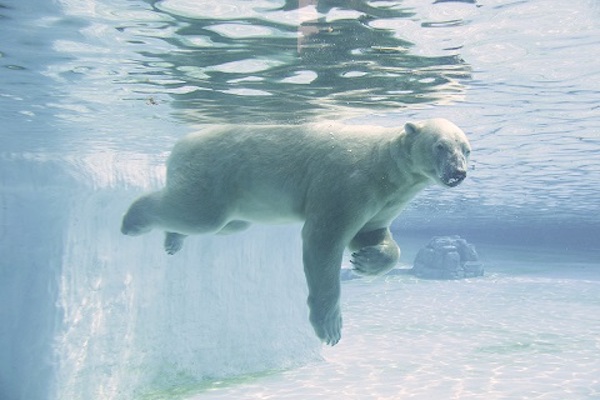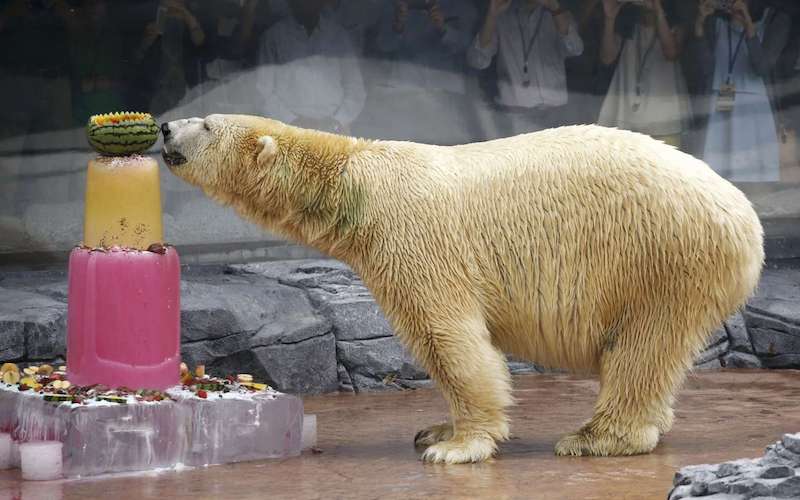Inuka, the first polar bear to be born in the tropics and one of the Singapore Zoo’s most iconic mascots, is not doing so well.
The 27-year-old creature underwent a health examination on Apr. 3, and according to Wildlife Reserves Singapore (WRS), the results revealed that Inuka’s health is “declining markedly”.
The past three months have seen the beloved polar bear’s activity levels dipping noticeably, as he prefers to rest instead of swim or take part in daily interaction sessions with his keepers, such as playing with traffic cones and boomer balls.
The veterinary care team also revealed that Inuka’s age-related general muscle atrophy has become evident, on top of existing afflictions such as arthritis and occasional ear infections. An abnormal shuffling gait in its hind limbs has resulted in abrasions on its paw pads, too.
“His veterinary care team has given a guarded prognosis and are monitoring Inuka on a daily basis,” wrote WRS in a press release. “His keepers are closely monitoring his welfare, and his quality of life assessment is under constant review.”
For now, daily polar bear interaction sessions have been suspended at the zoo to allow Inuka to enjoy the time he has left, but fans can continue to visit the bear at the zoo’s Frozen Tundra exhibit. While they still can.
Past his prime

To be fair, Inuka is considered pretty old in polar bear years. In the wild, male polar bears have a life expectancy of up to 18 years, while the average lifespan of polar bears under human care is about 25 years. The fact that polar bears have been found to be poor candidates for captivity and the fact that Singapore’s tropical climate is completely unsuitable for any Arctic predator have been points for criticism against Inuka’s captivity.
Though the zoo has proudly touted Inuka as its mascot for decades, having a polar bear living in a humid, muggy climate like Singapore’s despite it being an animal that’s evolutionarily built to withstand the cold is problematic. Sixteen years since Inuka was born, the Singapore Zoo announced that it will no longer import animals from the Arctic.
A four-month undercover operation conducted by the Animal Research and Education Society (Acres) in 2006 found that the zoo’s resident polar bears exhibited severe signs of heat stress and showcased psychological and physical indicators that the animals were not coping well with their environment.
Despite all that, it’s a truly impressive feat for the Singapore Zoo’s team to provide an environment that has managed to keep Inuka alive for so long. WRS noted that a second health examination will be scheduled later this month to analyze how he’s doing. If results indicate that his health results have not improved, WRS may make the tough (but right) decision to put him down “on humane and welfare grounds”.




